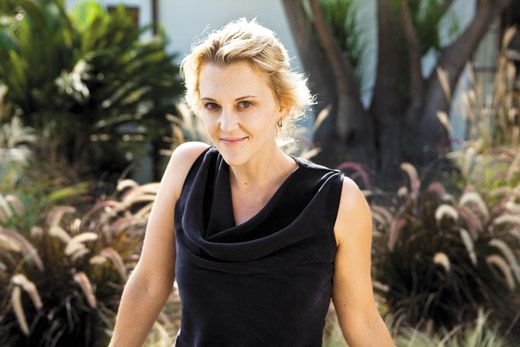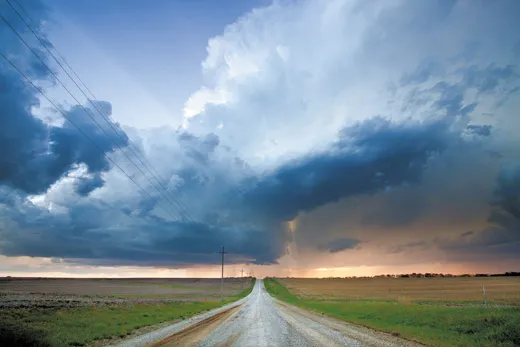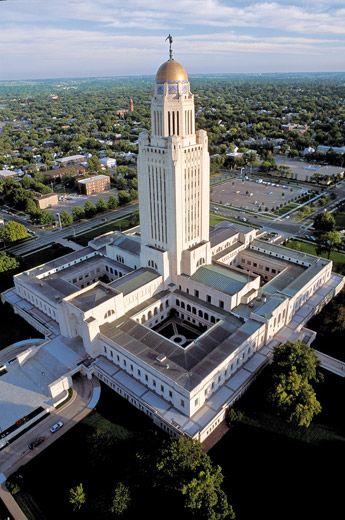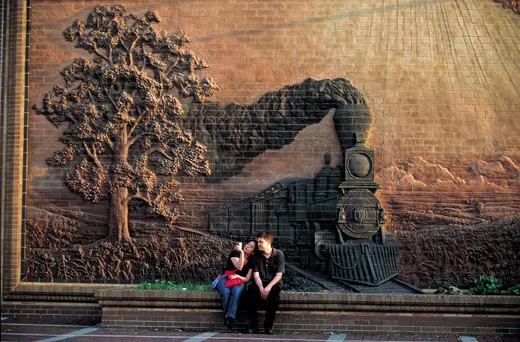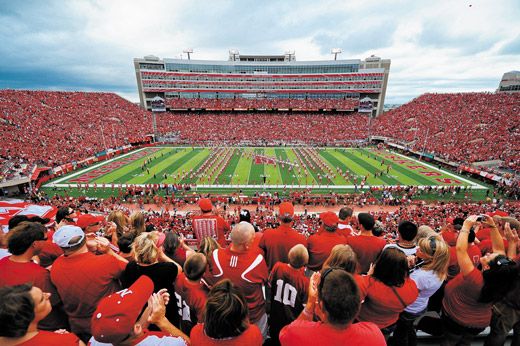Lincoln, Nebraska: Home on the Prairie
The college city’s big sky and endless farmland gave this New Yorker some fresh perspective
/https://tf-cmsv2-smithsonianmag-media.s3.amazonaws.com/filer/My-Town-Lincoln-NE-outside-631.jpg)
The thing you have to understand about Lincoln is that it falls under the radar. Unless you’re from Nebraska—or possibly South Dakota or Iowa—it’s probably not a place you’d think of visiting, much less moving to. No matter how unaffordable life becomes in Brooklyn or Portland or Austin, Lincoln is unlikely to turn up on a list of “unexpected hipster destinations.” But, being extremely unhip, I moved there anyway. In 1999, when I was 29, I traded New York City for it and stayed nearly four years. This was a strange thing to do, and it perplexed a lot of people, particularly because I did not, contrary to some assumptions, go there for school or a guy or because I was in the witness protection program. As a result, there’s a part of me that feels like an impostor whenever I write or even talk about Lincoln. I’m not from there, I don’t live there now, and when I did live there, I occupied an often awkward middle ground between guest and resident. By this I mean that even though I lived in a house and had friends and a relationship and a book club and a dog, I was always regarded as “the person who moved here from New York for no particular reason.” In Nebraska that translates loosely into “deeply weird person.”
I could tell you the basics. That Lincoln is the state capital and the county seat and the site of the main campus of the University of Nebraska, and that the capitol building has a 15-story tower commonly referred to as “the penis of the plains.” I could tell you that recent figures put the population at nearly 260,000 and the median household income at just under $45,000. I’d be obliged to mention, of course, that the biggest deal in town is, and always has been, Cornhusker football. The stadium has a capacity of more than 80,000, and on game days the normally wide-open 60 miles of interstate between Lincoln and Omaha goes bumper to bumper.
I could tell you the stuff that’s slightly beyond the basics. That despite Husker pride—there’s a disproportionate number of red cars and trucks on Lincoln’s streets—and the beer-chugging, chest-painting, corn hat-wearing (yes, as in a corncob on your head) all-American gestalt that comes with it, Lincoln’s not as Wonder Bread as you might think. Since the 1980s, it’s been a locus for refugee resettlement, and there are thriving communities of Iraqis and Vietnamese and Sudanese, to name a few. It’s also got a visible LGBT (lesbian, gay, bisexual, transgender) population, a lot of aging hippies and the kind of warmed-over, slightly self-congratulatory political correctness common to left-leaning university towns in red states. Unlike Omaha, which wants the rest of the country to know that it has tall buildings and Fortune 500 companies, Lincoln wants you to know that it’s culturally sophisticated, that it’s got a vegetarian sandwich shop and a public radio station and a wine bar. Like a restless kid from a small town, Lincoln wants to prove to you that it’s not a hick. All the same, the country comforts of its steakhouses and honky-tonks make you want to put your arms around it as though it were a big, shaggy sheepdog.
But all that stuff always seems slightly beside the point. The Lincoln I love—the reason I stayed as long as I did and have returned nearly every year since—actually starts where the city limits end. Drive five minutes out of town and farmland unspools before you, replacing the car dealerships and big-box stores with oceans of prairie grass and corn growing in lock step rows all the way to the horizon. This is where I spent the bulk of my Lincoln years; in a tiny farmhouse on the northwestern outskirts of town with an eccentric boyfriend and lots of animals (dogs, horses, a pig—the whole tableau). It would be a lie to say I didn’t have some dark hours. My total income in 2001 was just over $12,000. My debit card was declined at the Hy-Vee supermarket more than once. I seriously wondered about whether I had it in me to seek work at the Goodyear plant. (I didn’t.) As quiet as the days and nights were, there was chaos all around—animals that got sick, propane tanks that ran out of gas on frigid weekends. This wouldn’t surprise a Nebraskan. It is not possible, after all, to live on a farm with a boyfriend, eccentric or otherwise, and animals five times your size without wondering if your life is piling up in snowdrifts around you. You can’t live through a rural Nebraska winter without succumbing to at least a little of the “prairie madness” the early homesteaders battled when the wind blew mercilessly for weeks and months at a time.
Still, that landscape is the place my mind summons when I’m asked (usually in some yogic or meditative context, now that I live in Los Angeles) to close my eyes and “imagine a scene of total peace and serenity.” In those moments, I picture the Rothko-like blocks of earth and sky, the psychedelic sunsets, the sublime loneliness of a single cottonwood punctuating acres of flat prairie. I remember the sound of golf ball-size hail hitting the roof and denting the car. I remember sitting on the front porch and watching a lightning storm that was miles away but cracked the whole night open nonetheless. It was there, under that sky and at the mercy of all that weather, that I began to understand the concept of a wrathful God. In Nebraska, storms are a violence from which no amount of caution or privilege can protect you. Their warnings crawl across television screens in every season. They’ll blow you or freeze you or blind you into submission. They’ll force you into some kind of faith.
Lincoln gave me a faith in second chances. In third and fourth chances, too. I’d had a nervous upbringing in the tense, high-stakes suburbs of New York City, after which I lived hungrily and ecstatically, but no less nervously, in the clutches of the city itself. This was a life that appeared to have no margin for error. One mistake—the wrong college, the wrong job, embarking on marriage and family too soon or too late—seemed to bear the seeds of total ruination. Terrified of making a wrong move, of tying myself down or cutting off my options, I found myself paralyzed in the classic New York City way. I paid my rent, pursued my career, worked at temp jobs and went on second (but not third) dates. I was waiting for the big score, of course (what is New York City if not a holding pen for people awaiting recognition of their greatness?), but in the meantime I was holding still, making no commitments or sudden moves, never venturing past the point of no return, honoring the nervous energy that paid my bills (barely) and delayed most of my gratification indefinitely.
Until one day I got on a plane and moved to Lincoln. Like I said, I don’t expect people to get it. I didn’t get it myself. Instead, I can offer this controlling metaphor. It concerns the final approach into the Lincoln airfield. It’s a long runway surrounded by fields, with no built-up adjacent areas or bodies of water to negotiate. The runway is so long, in fact, that it was designated an emergency landing site for the space shuttle and, to this day, every time I fly in, even when the wind is tossing the little plane around like a rag doll, I always have the feeling that nothing can possibly go wrong. The space is so vast, the margin for error so wide, that getting thrown off course is just a minor hiccup, an eminently correctable misfire. Lincoln’s air space, like its ground space, is inherently forgiving.
After those acid trip sunsets, that’s the thing about Lincoln that rocked my world. That you can’t really mess up too badly. You can marry too young, get a terrible tattoo or earn $12,000 a year, and the sky will not necessarily fall. The housing is too cheap and the folks are too kind for it to be otherwise. Moreover, when you live underneath a sky that big, it’s hard to take yourself too seriously. Its storms have a way of sweeping into town and jolting your life into perspective. That jolt was Lincoln’s gift to me. It comes in handy every day.
Meghan Daum’s most recent book is Life Would Be Perfect If I Lived in That House.
